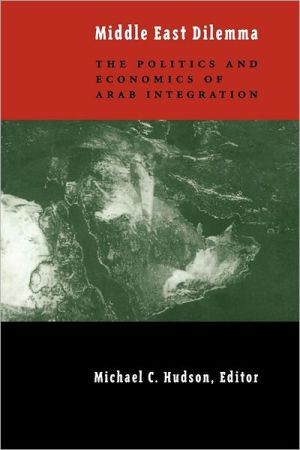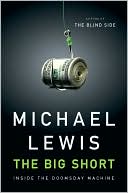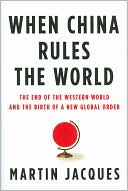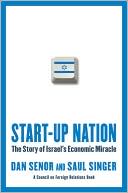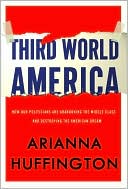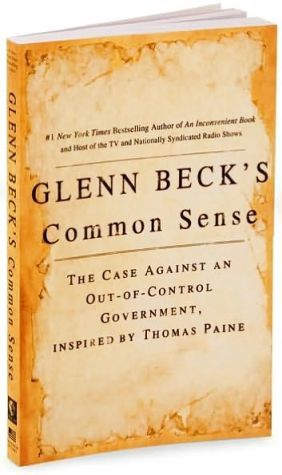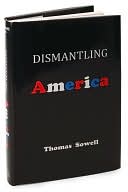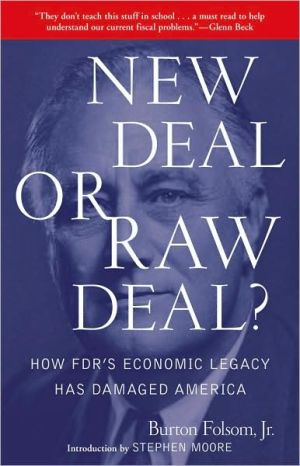The Middle East Dilemma: The Politics and Economics of Arab Integration
In the 1990 the Gulf War, the collapse of the Soviet Union, the Arab-Israeli peace process and the trend to market-driven economies impacted the regional political and economic order of the Arab world dramatically. How do these events affect the processes of Arab integration? Is the idea of an Arab political and economic comunity in the broadest sense no longer viable? What lessons can be learned from recent attempts toward the future of Arab unity? A team of respected political scientists,...
Search in google:
From the unification of North and South Yemen, to the struggle for Mahgreb unity, and the experiences of the six-member Gulf Cooperation Council, this book presents a complex portrait of the history and prospects for Arab integration. Clovis Maksoud An insightful and comprehensive analysis of a region that continues to be conflict prone and challenged by factors both regional and global. . . . highlights long ignored issues, such as the dynamic forces of integration, and puts in context the historical and the current causes for the divisive reality that characterizes the region. Michael Hudson´s brilliant and sensitive introduction is matched by the substantive and scholarly analysis of his chosen contributors. Middle East Dilemma will definitely be required reading in my class.
List of Tables and FiguresList of ContributorsPreface and AcknowledgmentsIntroduction1Arab Integration: An Overview1IThe Changing Arab Regional System332The Arab World and the New Balance of Power in the New Middle East353The Prospects for Arab Cooperation in a Changing Regional and Global System604From Pan-Arabism to the Community of Sovereign Arab States: Redefining the Arab and Arabism in the Aftermath of the Second Gulf War92IIExperiments in Political Integration1075The Rise and Fall of the United Arab Republic1096The United Arab Emirates: A Quarter Century of Federation1287The Gulf Cooperation Council: Nature, Origin, and Process1508The Ups and Downs of Maghrib Unity1719The Republic of Yemen: The Politics of Unification and Civil War, 1989-1995187IIIEconomic Integration21510Inter-Arab Economic Relations During the Twentieth Century: World Market vs. Regional Market?21711Arab Economic Integration: The Poor Harvest of the 1980s23312Technology: A Disintegrative Factor in the Arab World25913Labor Migration and Economic Integration in the Middle East27914Prospects for Regional Economic Integration After Oslo299Index321
\ Rex BrynenAt a time when inter-Arab politics seem as uncooperative as ever, Michael Hudson´s book comes as a breath of fresh analytical air. He and an impressive array of fellow scholars not only explore the barriers to Arab integration but also show the continued importance of the shared identity and common challenges that permeate much of the region. Middle East Dilemma: The Politics and Economics of Arab Integration is essential reading for any serious student of international relations in the Middle East.\ \ \ \ \ Fawaz GergesMichael Hudson´s book is the most comprehensive survey on the question of political and economic integration in the Arab world beginning in the early part of the twentieth century and until the present.\ \ \ Clovis MaksoudAn insightful and comprehensive analysis of a region that continues to be conflict prone and challenged by factors both regional and global. . . . highlights long ignored issues, such as the dynamic forces of integration, and puts in context the historical and the current causes for the divisive reality that characterizes the region. Michael Hudson´s brilliant and sensitive introduction is matched by the substantive and scholarly analysis of his chosen contributors. Middle East Dilemma will definitely be required reading in my class.\ \ \ \ \ BooknewsProvides a new assessment of Arab regional integration in its broadest sense. Fourteen contributions bring together a variety of theoretical perspectives from political science, international relations, history, and economics in order to analyze not only the Arab region with attention to economic and security aspects, but also to investigate through case studies a number of subregional integrative experiments. Topics include the changing Arab regional system, experiments in political integration, and economic integration. Annotation c. by Book News, Inc., Portland, Or.\ \
